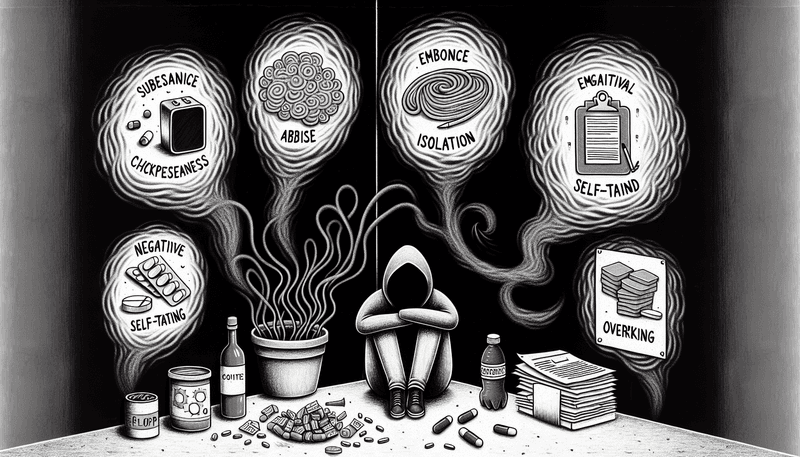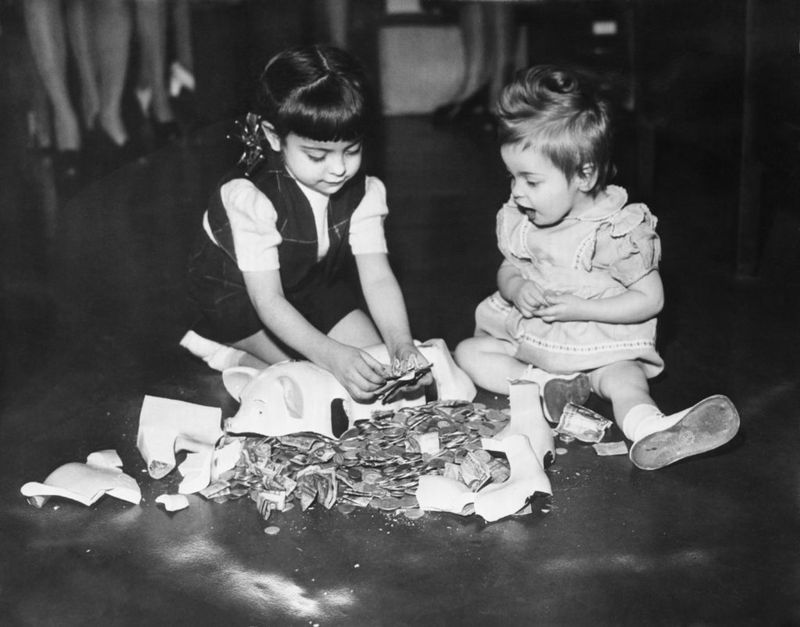Often, the habits we embrace daily stem from the subtle influences of our upbringing. Our parents, the first and most impactful role models, impart behaviors that we might not even recognize until we pause to reflect. Without overt intention, many of the things we do—from the way we handle stress to how we manage our day-to-day tasks—are echoes of our parents’ own habits. These inherited behaviors become so ingrained in our routines that they might go unnoticed. However, understanding these patterns can provide insight into our own behaviors, offering a chance to reshape or embrace them as needed.
1. Avoiding Expressing True Opinions

In many households, the expression of true opinions was not encouraged, leading to a reluctance to share one’s thoughts openly. This apprehension often stems from a fear of judgment or conflict. Growing up with this mindset, individuals might find themselves frequently holding back their honest perspectives. It can affect personal relationships and professional settings alike. A suppressed voice leads to internal conflict, where one’s true desires and opinions remain hidden. The challenge here is recognizing the value in one’s voice and finding safe spaces to express it without fear.
2. Difficulty Setting Boundaries

Boundaries, especially personal ones, are essential yet often difficult to establish for those who grew up with parents who disapproved of them. This can make saying “no” feel daunting, as if it might lead to personal rejection or conflict. In professional environments, this might translate to taking on too much work or failing to advocate for oneself. It can also affect personal relationships, where one might overextend themselves to please others. Understanding the importance of self-preservation and personal space is crucial in overcoming this inherited habit.
3. Overly Critical Self-Talk

The harsh inner voice many struggle with often has roots in the constant criticism faced during childhood. When parents are overly critical, children learn to internalize this voice. As adults, they might find themselves stuck in a loop of negative self-assessment. This constant self-criticism can lead to damaged self-esteem and hindered personal growth. Breaking free from this pattern requires conscious effort and self-compassion. One must learn to replace these negative thoughts with constructive feedback. Encouraging positive affirmations can help transform this debilitating habit into a supportive mindset.
4. Difficulty Asking for Help

For those who grew up in environments where parental assistance was scarce, asking for help becomes an uncomfortable endeavor. Parents who were too busy or emotionally unavailable can inadvertently teach their children to rely solely on themselves. This learned independence, while beneficial in some ways, can hinder one’s ability to seek support when needed. It creates an unnecessary burden, as individuals attempt to solve every problem on their own. Acknowledging that seeking help is a strength, not a weakness, is a crucial step in overcoming this challenge.
5. Avoidance of Conflict

Growing up in homes where conflict was either frequent and explosive or silently simmering can lead to a deep-seated fear of confrontation. For such individuals, avoiding conflict becomes second nature. This habit of walking away from disagreements, while seemingly peaceful, often leads to unresolved issues and lingering resentment. It affects personal and professional relationships as communication becomes stifled. Learning to engage in healthy, constructive conflict is essential. It opens pathways for clear communication and mutual understanding, transforming potential discord into opportunities for growth.
6. Perfectionism

The drive for perfection often originates from parents with high expectations. This relentless pursuit can lead to immense stress and dissatisfaction. While striving for excellence isn’t inherently negative, perfectionism turns achievements into obligations rather than accomplishments. It traps individuals in a cycle where nothing is ever “good enough.” Understanding that perfection is unattainable and embracing the beauty of imperfections can be liberating. It allows one to appreciate effort and progress without the crippling fear of falling short, fostering a healthier, more balanced approach to goals.
7. Difficulty Managing Emotions

In homes where emotions were suppressed or dismissed, children often learn to bottle up their feelings. As adults, they might find it challenging to express emotions openly, leading to misunderstandings and strained relationships. The inability to articulate one’s emotional state can create a disconnect with oneself and others. It is crucial to recognize the importance of emotional expression and to practice vulnerability. By acknowledging and sharing emotions, individuals can form deeper connections and foster a more authentic sense of self-awareness and empathy.
8. Procrastination

Procrastination is a habit often observed in parents and subsequently adopted by their children. This tendency to delay tasks can become deeply ingrained, affecting productivity and causing unnecessary stress. It often stems from a fear of failure or a lack of motivation, making even simple tasks seem daunting. Recognizing this pattern and understanding its origins is the first step in overcoming it. Implementing structured routines and setting realistic goals can transform this habit, turning procrastination into productivity and fostering a sense of accomplishment.
9. Unhealthy Coping Mechanisms

Coping mechanisms learned from parents can often lean towards unhealthy habits, such as overeating or substance use. These behaviors are typically adopted as ways to manage stress and emotional turmoil. While they might offer temporary relief, they often lead to additional problems. Recognizing the impact of these habits is crucial in breaking the cycle. Exploring healthier alternatives, such as physical exercise, meditation, or creative outlets, can provide more sustainable and positive ways to cope with life’s challenges, promoting overall well-being and resilience.
10. Financial Habits

Financial behaviors are often passed down without conscious awareness. Parents’ attitudes towards money—whether frugal, impulsive, or indifferent—can significantly influence their children’s financial habits. These inherited behaviors can dictate spending patterns, saving habits, and attitudes toward debt. Understanding one’s financial disposition begins with recognizing these inherited patterns. By educating oneself and adopting mindful spending and saving strategies, individuals can reshape their financial future. Learning from past mistakes and making informed decisions can lead to financial stability and a more secure lifestyle.
11. Difficulty Expressing Emotions

The challenge of expressing emotions is often rooted in childhood environments where feelings were not openly discussed. This habit of emotional suppression can lead to a lack of emotional intelligence and difficulty in forming genuine connections. It becomes a barrier in both personal and professional interactions, often resulting in misunderstandings. Cultivating the ability to express emotions openly can lead to healthier relationships and a more fulfilling life. Embracing vulnerability and practicing emotional honesty are key steps toward overcoming this inherited habit, fostering deeper connections and understanding.
12. Overplanning or Micromanaging

Growing up in a household where every detail was meticulously planned can lead to a habit of overplanning or micromanaging. This desire for control can be overwhelming and stifling, often hindering spontaneity and creativity. While structure and order have their place, excessive micromanagement can create stress and limit flexibility. Learning to let go and embrace uncertainty can be liberating. It allows for adaptability and innovation, fostering a more balanced and fulfilling approach to both personal and professional life, where not every detail needs to be predetermined.
13. Negative Self-Talk

Negative self-talk, often an echo of parental criticism, can become a pervasive habit. This internal dialogue can deeply impact self-esteem and overall mental health. Transforming this habit involves shifting the narrative and embracing self-compassion. By replacing negative affirmations with positive ones, individuals can foster a more supportive inner voice. This change encourages self-growth and resilience, allowing one to face challenges with confidence and optimism. Understanding that mistakes are part of learning is key to silencing the inner critic and nurturing a healthier self-image.

Well, hello there!
My name is Jennifer. Besides being an orthodontist, I am a mother to 3 playful boys. In this motherhood journey, I can say I will never know everything. That’s why I always strive to read a lot, and that’s why I started writing about all the smithereens I came across so that you can have everything in one place! Enjoy and stay positive; you’ve got this!

